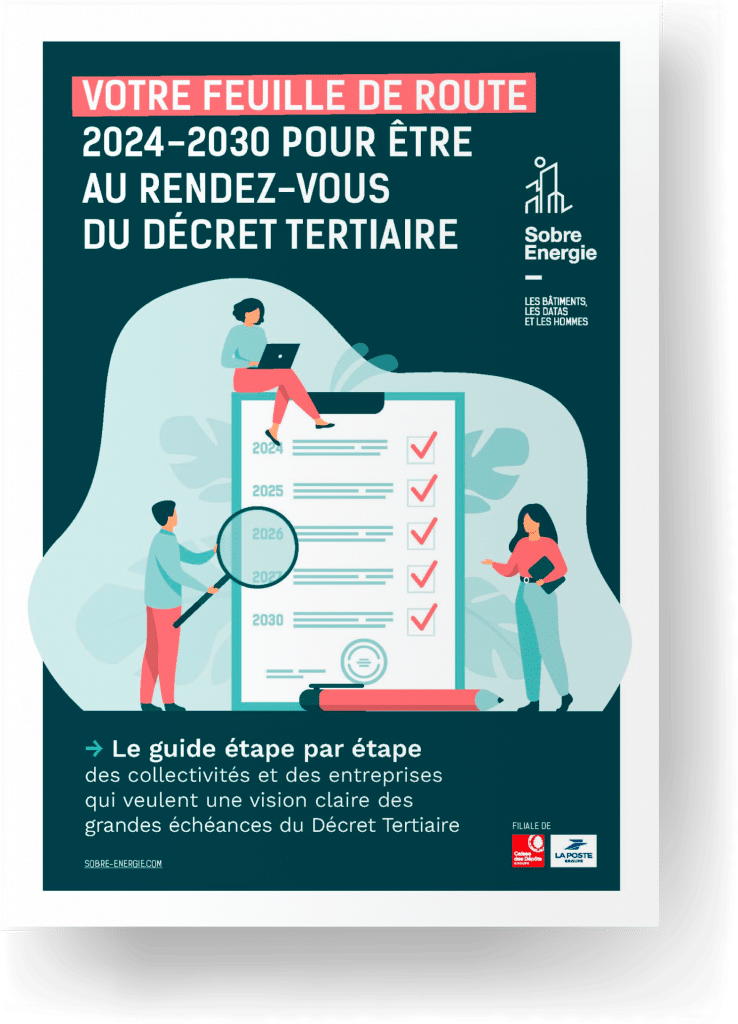Le récent rapport du GIEC l’a encore rappelé : le temps presse pour la transition énergétique. Objectif atteindre la neutralité carbone en 2050 et contenir le réchauffement climatique à +2°C maximum.
Cette transition énergétique est aussi une priorité pour les étudiants, à l’image du manifeste pour un réveil écologique signé par plus de 33 000 jeunes.
Et si vous deveniez un campus responsable en réduisant l’impact carbone de vos bâtiments ? Les gains sont multiples:
- Impact RSE auprès des étudiants
- Conformité réglementaire
- Facture allégée à l’heure de la flambée des prix de l’énergie
Responsable et exemplaire
Les exemples récents sont multiples, l’heure est à la transition énergétique dans l’enseignement supérieur :
- Plan climat de l’école Polytechnique pour réduire de 20% les émissions de GES par usager du campus
- Projet de rénovation thermique du campus de Centrale Lyon pour réduire les consommations de chauffage au gaz de 60% en 2022 par rapport à 2015
- Trophée des campus responsable qui récompense chaque année les actions de transition écologique mises en place par des établissements supérieurs
Avec 44% de l’énergie finale consommée, et 20% des Gaz à Effet de Serre (GES), le secteur du bâtiment pèse lourd dans le bilan carbone français. Heureusement, il est possible d’optimiser l’exploitation des bâtiments par du management énergétique. Sobre Energie accompagne ainsi plusieurs universités, la Sorbonne, Bordeaux, Lyon 1 Claude Bernard.
Objectif, diminuer à court terme leurs consommations énergétiques avec ces actions techniques par exemple:
- Installation de capteurs pour détecter des anomalies de consommation dans des zones qui restent allumées ou chauffées la nuit et le w-e alors que le bâtiment est vide
- Installation d’une GTB, pilotage centralisé des systèmes de chauffage et de climatisation du bâtiment
- Remplacement d’une chaudière au gaz par une pompe à chaleur moins énergivore et source d’un chauffage moins carboné.
Au total, selon l’Observatoire de l’Immobilier Durable (OID) les réglages techniques et petits travaux permettent des gains de consommation jusqu’à 30%.
En savoir plus sur notre plateforme de management énergétique
Engager son campus à court terme
Pour aller encore plus loin, engager les occupants du bâtiment est un levier puissant. La sobriété énergétique permet de réduire sa facture. En sensibilisant par exemple à bien régler la température de consigne du chauffage. L’Ademe, l’agence de la Transition énergétique, recommande une température de consigne comprise entre 19°C et 21°C dans un bâtiment de type bureau occupé. 1°C de consigne de température en plus sur le chauffage induit une surconsommation de 7%.
Au total, selon l’OID impliquer les occupants dans des usages sobres en énergie, c’est -15% de consommation dans un bâtiment.
-19% de consommation, nous l’avons fait avec l’Université de Bordeaux
Stratégie Décret tertiaire à long terme
Les universités sont assujetties au dispositif éco énergie tertiaire, pour tout bâtiment de 1000 m2 ou plus.
Objectif : diminuer ses consommations en valeur absolue ou relative (-40% d’ici 2030, -60% d’ici 2050)
La 1e échéance de remontée des données sur la plateforme OPERAT de l’Ademe est fixée au 30/09/2022.
A moyen et long-terme, cela implique de fixer sa stratégie immobilière :
- Renouvellement d’équipements moins carbonés
- Actions sur le bâti
Sobre Energie propose plusieurs solutions pour vous accompagner dans votre stratégie décret tertiaire :
- Audit et études énergétiques, le point de départ pour bien connaître son parc et son potentiel d’économies
- Le Pareto by Sobre, pour identifier les bâtiments les plus énergivores sur lequel faire porter les efforts prioritairement
Suivi et pilotage des consommations multi-fluides
- Validation of subject sites
- Collecte et intégration des données dans OPERAT
- Choice of reference year
- Suivi et déclaration dans OPERAT des consommations annuelles
Etes-vous sûrs d’être prêts pour le Décret Tertiaire ?
Notre article « 5 idées reçues sur le DT » est fait pour vous
🤖 Summarize this article with an AI
Click on a button to automatically sum up this page with the AI of your choice.
